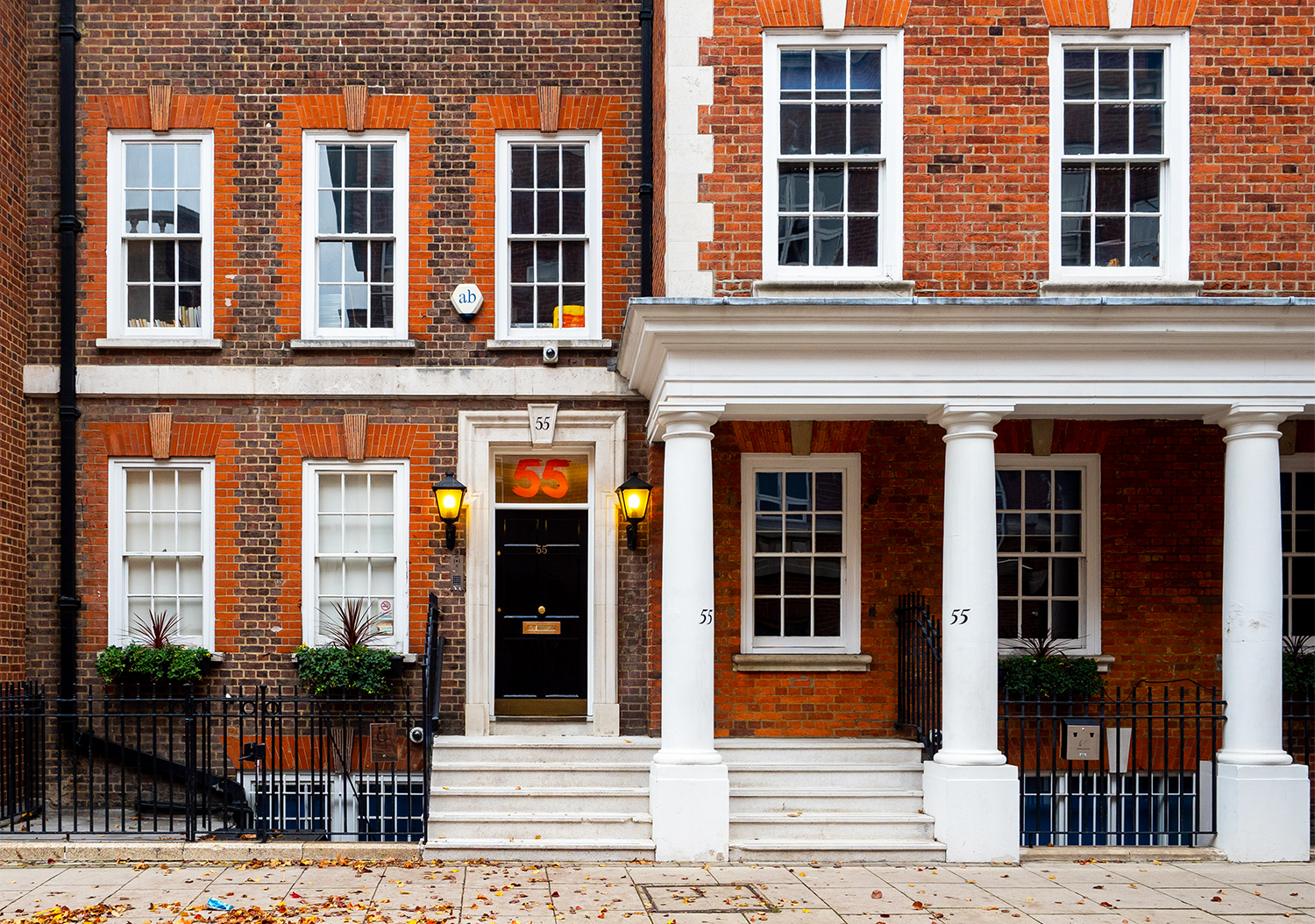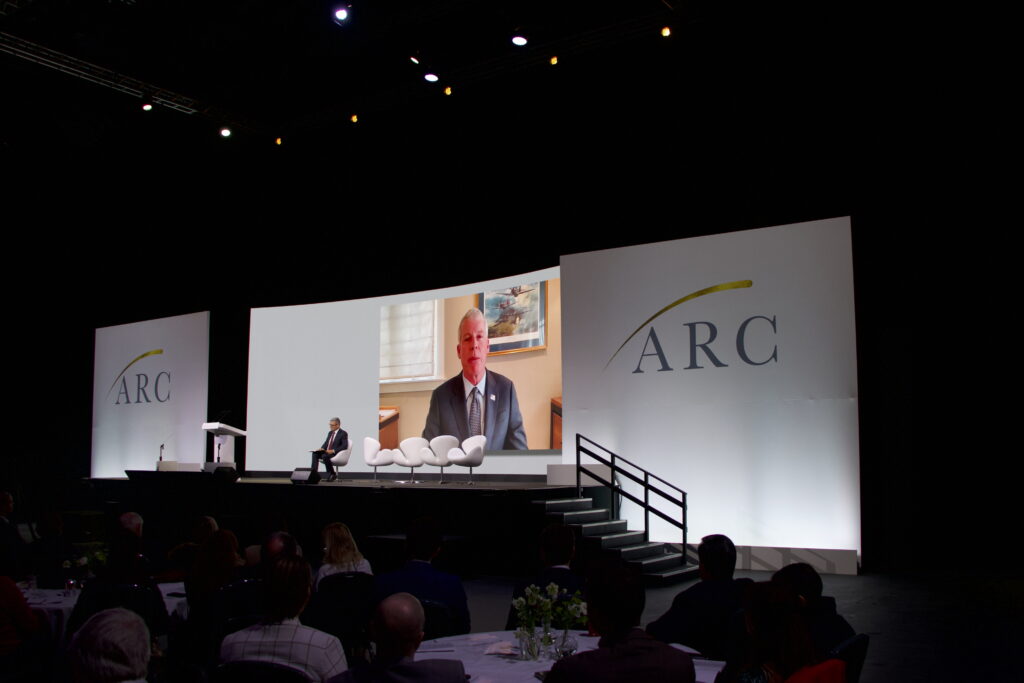Conservative donors have gifted over £6.8 million to think tanks in the Tufton Street network since 2019, Democracy for Sale and DeSmog can reveal.
Most of these think tanks hide their funders’ identities, but several wealthy Tory supporters disclose their donations to Tufton Street in the accounts of their charitable trusts.
Tufton Street groups have often acted as a blocker to climate action, with their anti-green stances ranging from opposition to state-led climate intervention to active climate science denial.
Documents unearthed by Democracy for Sale show that seven Tory donors, four of whom are also Conservative peers, have used charities to funnel money into right-wing think tanks.
Subscribe to our newsletter
Stay up to date with DeSmog news and alerts
More than £3.7 million was gifted to the Institute of Economic Affairs (IEA) in the form of an “investment” by Nigel Vinson’s charitable trust last year. Vinson – the IEA’s life vice president and former Conservative member of the House of Lords – has given the IEA a further £596,000 over the last decade.
Vinson has also given £49,000 to the Global Warming Policy Foundation (GWPF), the UK’s leading climate science denial group. The GWPF was founded to contradict established climate science and has in the past expressed the view that carbon dioxide has been mis-characterised as pollution when in fact it is a “benefit to the planet”.
Vinson said in 2014 that he was “very proud to fund” the GWPF. He has also provided £113,500 in funding since 2019 to the Tufton Street think tank Civitas, which was forced to retract a report in September 2023 on the alleged costs of achieving net zero emissions after getting its data “embarrassingly wrong”.
In addition to its funding from Vinson, the IEA has also taken money from Lord Michael Hintze, Lord Jon Moynihan, Lord Simon Wolfson, and Lord Jamie Borwick since 2019. All four men have donated money to the Tories and have received life peerages from the Conservative government.
The IEA has long opposed state-led climate policies. The think tank’s chief operating officer and energy analyst, Andy Mayer, has called for the UK’s net zero target to be “scrapped”, has advocated increased drilling in the North Sea, and a revival of fracking.
Lord Hintze is also one of the few known donors to the GWPF, while official records show that he has given more than £4 million to the Conservatives since 2002. This has included five donations to current Cabinet members, notably Energy Security and Net Zero Secretary Claire Coutinho, and Environment Secretary Steve Barclay.
This week, Democracy for Sale revealed that directors, trustees, and advisers of Tufton Street think tanks have collectively given more than £35 million to the Conservative Party over the last two decades.
Lord Hintze has said that he believes “there is climate change” caused “in part due to human activity over the past century”. However, he has said that “all sides must be heard” on climate change “to reach the right conclusion for society as a whole”.
The UN’s Intergovernmental Panel on Climate Change (IPCC), the world’s foremost climate science body, has stated it is “unequivocal that human influence has warmed the atmosphere, ocean and land”.
IEA funder Lord Moynihan, who has given over £100,000 to the group since 2019, also has substantial oil and gas investments. The peer’s register of interests shows that he holds shares worth more than £100,000 in each of the oil and gas majors BP, Shell, and TotalEnergies. Moynihan has also given £20,000 to the GWPF since 2019, as well as £35,000 to the TaxPayers’ Alliance (TPA), £10,000 to the Centre for Policy Studies (CPS), and £40,000 to the Adam Smith Institute (ASI) – all of which are members of the Tufton Street network.
Labour’s Liam Byrne told Democracy for Sale that “these extraordinary revelations bring out of the dark shadows a truth we’d long suspected. A tiny group of super-rich donors has been systematically investing millions into extreme economic ideas and right wing candidates in an attempt to hijack the Tory agenda in their own interest.
“It’s fresh evidence for why we need a total overhaul of the way we force think tanks to come clean about the role of dark money funding their operations in the interests of a wealthy few.”
The right-wing think tank Policy Exchange has received more than £1.5 million since 2019 from five Tory donors who made fortunes in the City, including Lord Moynihan. Rishi Sunak last year credited Policy Exchange, where he used to work, with helping to draft the government’s crackdown on climate protests. In 2017 the group’s U.S. wing, American Friends of Policy Exchange, received $30,000 (roughly £23,700) in funding from oil major ExxonMobil.
The full value of Tory-linked donations to Tufton Street is likely to be significantly higher than the sum calculated by Democracy for Sale and DeSmog. For example, CPS board members – who include Tory mega donors Lord Anthony Bamford and Lord Michael Spencer – donated £1.13 million to the think tank in the year to September 2023, according to its annual accounts, though the identities of individual donors are not known.
DeSmog revealed in November 2023 that the CPS had been pushing for further North Sea oil and gas drilling while several of its board members held financial interests in the industry. A CPS spokesperson previously told DeSmog that the think tank is “grateful for all our supporters, especially the support of our board members, but the investments of other boards on which they sit have no bearing on their relationship with the CPS”.
DeSmog has also today released a new report, mapping the extensive ties between Tufton Street think tanks, the fossil fuel industry, right-wing media outlets, and the Conservative Party. The party has accepted at least £8.4 million since the 2019 general election from fossil fuel interests, climate science deniers, and highly polluting industries. Over the past year, Sunak’s government has reversed a number of flagship net zero policies and sanctioned more North Sea oil and gas exploration.
Tufton Street’s Influence
The Tufton Street network attempts to influence Westminster – in particular the policies of the Conservative Party – by producing reports, appearing regularly in the media, as well as holding regular meetings with ministers and their staff (who are often graduates of these think tanks).
All of the groups belonging to the network are libertarian, meaning that they advocate for a smaller state, lower taxes, and fewer regulations.
The IEA was highly influential during Liz Truss’s short-lived time as prime minister. In 2011, just a year after entering Parliament, Truss founded the Free Enterprise Group of backbench Conservative MPs described as the “parliamentary wing” of the IEA.
IEA Director General Mark Littlewood told Politico that Truss had spoken at IEA events more than “any other politician over the past 12 years” and former Downing Street adviser Tim Montgomerie claimed that the think tank “incubated” Truss and her chancellor Kwasi Kwarteng.
CPS board members include Conservative treasurer Graham Edwards, former party treasurer Ben Elliot, editor of The Spectator magazine Fraser Nelson, and 2019 Conservative manifesto co-author Rachel Wolf. The manifesto’s fellow co-author Robert Colvile is the director of the CPS.
Onward, the right-wing think tank that enjoyed the greatest access to ministers in 2023, openly declares that it is funded by Shell, BP, and Equinor.
An Onward spokesperson said: “Onward believes in openness and transparency. Twice a year, we publish the names of all donors and organisations who donate more than £5,000 per annum to support our work.
“We are a not-for-profit organisation and rely entirely on the generosity of our network to support our research programme. Most recently, we published work on public support for net zero, putting farmers on a more sustainable footing, and community benefits for areas hosting renewable energy. We routinely meet and share our research with government and shadow ministers.
“We do not take commissions from companies or government for specific pieces of research, which gives us complete editorial control over our priorities and conclusions. This safeguards our credibility and avoids accusations of vested interest.”
The other think tanks and donors named in this piece have yet to respond to our requests for comment.
Subscribe to our newsletter
Stay up to date with DeSmog news and alerts







